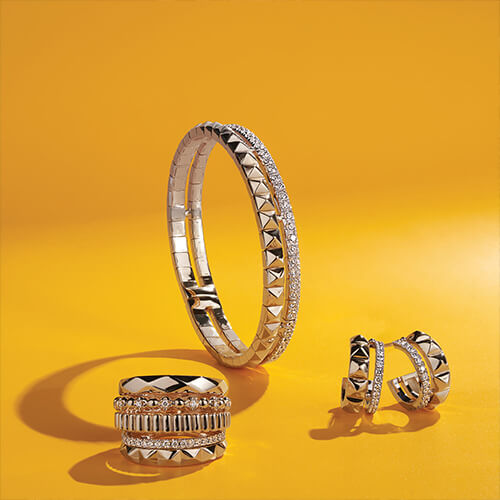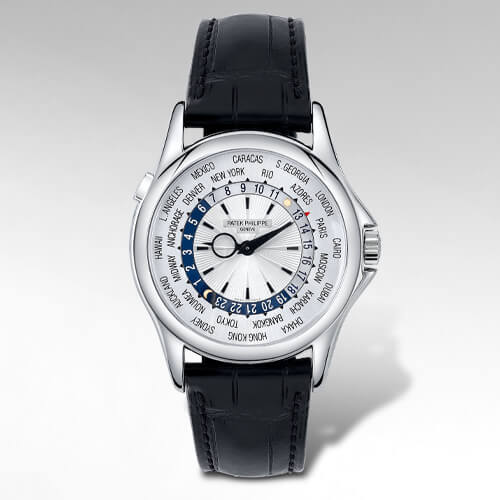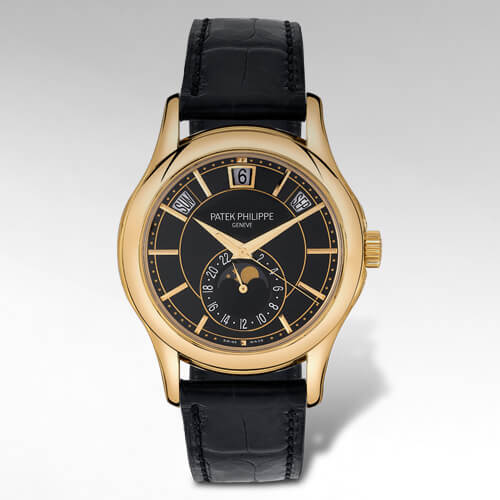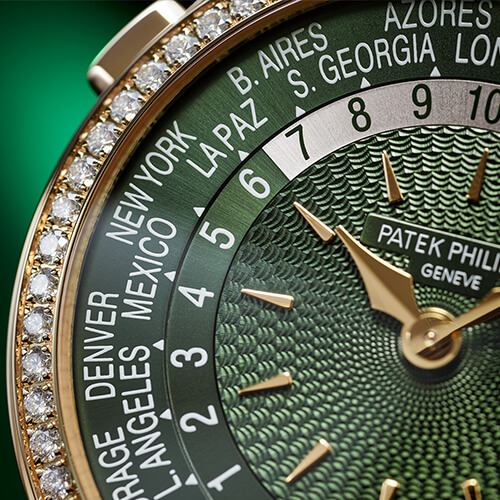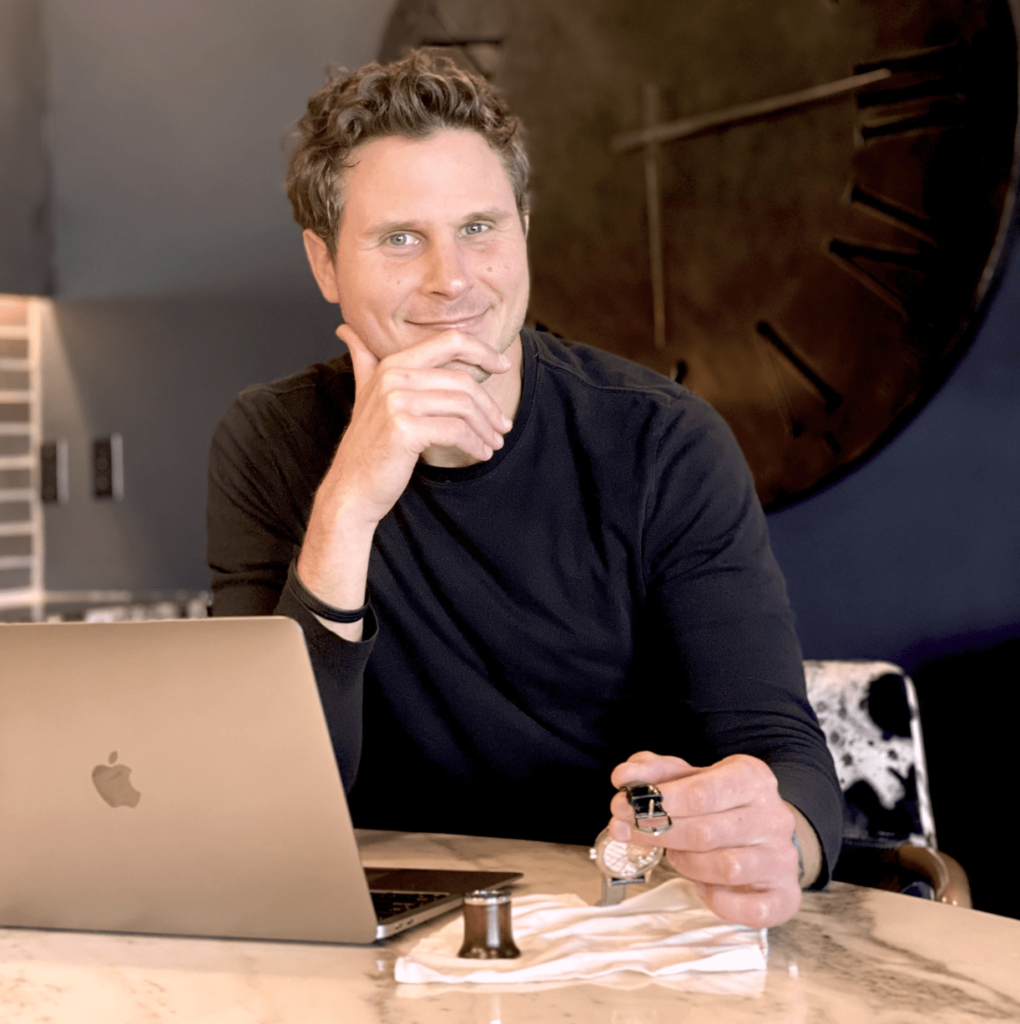Blog
What Makes Michael Fratangelo Tick?
A former Patek Philippe insider connects the dots between his childhood and a legendary Swiss watchmaker.
At a very young age, my two brothers and I were taught the importance of quality. Whether it was food, wine, clothing, jewelry, furniture or anything, quality was always what we looked for — and we never sacrificed it.
Living with an insistence on quality can be difficult, since fine products aren’t cheap, and cheap products aren’t fine. My Italian immigrant parents come from the humblest of roots, never having the money to purchase the finest timepieces, designer fashions or luxury vehicles. But, they were a constant presence in our lives, pushing us to work hard to achieve our dreams — even if our dreams included having the best handmade objects in the world.
My father is a highly skilled craftsman. When I think about those lessons on quality, I connect to warm childhood memories of him fixing and building all sorts of things — from restoring body damage on cars to a showroom finish; hanging cabinets so perfectly you would swear they grew organically out of the wall; even laying flooring with such precision that you wouldn’t believe each tile was placed by a human hand.
He did it all without any formal training. He fixated on the finest details — even the ones not visible to anyone, not exposed to the light of day. He obsessed over them until they were perfect. Sometimes, I questioned the level of energy he invested in them. His response always came back to quality: “This is the mark of true craftsmen. The work needs to be beautiful and perfect throughout — not just on the surface. It’s out of pride that I know it’s perfect in those hidden areas.” That explanation was inscribed in my mind, and it remains there today. As a young boy, I never looked at manmade objects the same.
Later in life, I would work for a company that exemplifies this mark of true craftmanship. Patek Philippe is truly the last family owned, independent watch manufacturer with a clear mission — which remains consistent with the pursuit that was originally laid down by its founders Antoine Norbert de Patek and watchmaker Jean Adrien Philippe: Develop and manufacture the finest timepieces in the world. Having worked there, I can assure you that Patek Philippe goes to extreme lengths to achieve these standards.
Over the course of nearly 185 years of uninterrupted watchmaking, Patek Philippe has always opted for the path more difficult — because that is also a mark of true craftsmanship. Over that time, they have created countless timepieces that have achieved cult status, earned world-renowned praise, smashed auction records and sent collectors scurrying around the globe hunting for its treasures.
Looking back on it now, almost 200 years after the company was formed, the level of success the brand enjoys could not have been entirely imagined. Yes, it was the dream, but if the founders had known what the company would have to endure to become the brand it is today, they may have been left dismayed. This ultimate success story plays out like a thriller: World wars, economic depressions and the eventual rise of quartz-powered watches — called the Quartz Crisis by makers of mechanical watches — were major events that consumed many manufacturers. And, yet, the original dream of Messrs. Patek and Philippe has endured. Production has never ceased.
The leadership of Patek Philippe — the company has changed hands only once, when the Stern family took the reigns from Jean Adrien Philippe’s grandson in 1932 — has stayed the course throughout its history. While other brands zigged to meet industry demands, Patek Philippe zagged to remain true to its original core mission, ultimately resulting in it being widely regarded as producing the world’s finest mechanical watches.
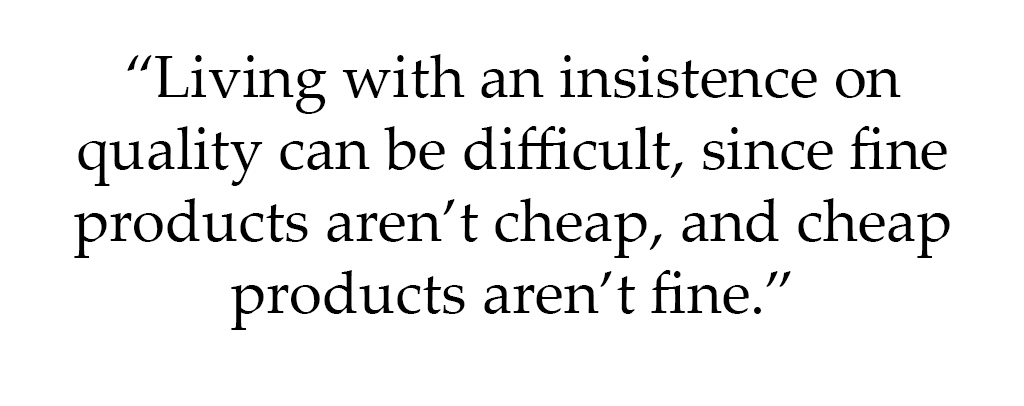
From its early days, the Geneva-based manufacturer developed timekeeping devices that strained the limits of engineering. As they continued to do so, their capabilities expanded, like a human muscle being trained and growing stronger over time. Along with development came a growing number of innovations — eventually stacking up more than 100 patents — all the while remaining true to coveted Swiss watchmaking traditions. Along the way, the company’s leadership made a habit of refusing short-term profits in exchange for greater long-term stability and steady profits. This is the formula on which Patek Philippe has thrived.
Having served in the commercial arm of the company for nearly 10 years, I had the privilege of regularly meeting and speaking with watch collectors and enthusiasts, both at home and abroad. My involvement in the training department, as a trainer, allowed me to engage with sales associates in the retail network and share knowledge. All of these interactions over the years were my favorite parts of the job.
I recognized early on that this particular brand requires a lot of education. Although I no longer work for Patek Philippe, I’m still asked regularly about the lengthy estimated delivery times of its watches. I’m always happy to provide a bit of context, because it is a mystifying phenomenon to the outside world — not just to consumers but to other watch manufacturers as well, primarily due to a disproportionate increase of orders compared to available product – so we end up with more waiting customers and less product to satisfy those orders. Communicating those wait times is difficult — especially when you’re the New Guy, as I was a decade ago — and it is a skill that needs sharpening. The faster you sharpen it, the more productive those conversations become.
Trying to explain the Patek Philippe application process? Not an easy one. I recall speaking to a nice gentleman on the phone, eager to purchase a particular watch. I elaborated on the application process and its philosophy — that it’s a way of understanding why a client appreciates this level of watch and why they are interested in acquiring one, assuring that these pieces go to people who truly appreciate the workmanship and exclusivity. What I received in response was an avalanche of swear words for what felt like a good five minutes. Needless to say, he wasn’t pleased. Once he hung up, I recognized that I had failed to reach him.
I used that phone call as motivation, and I studied harder. I began visiting with the watchmakers in the workshop, asking technical questions and meeting my own challenge, head-on, to learn all I could. They say knowledge is power, and truer words have never been spoken. My knowledge increased and my confidence increased with it. The more comfortable I became, the more I wanted to learn. My questions got harder. I knew I was gaining significant ground when the watchmakers began hiding from me when they saw me coming. On the flip side of feeling defeated was a sense of fulfillment.
When you work for Patek Philippe, you feel an obligation to safeguard the brand. This includes the products, the brand values and the owner experience. You learn that Patek Philippe has transcended the art of fine watchmaking; that it is an horological company to the very core. (The museum in Geneva containing more than 2,000 timepieces, all fully operational, is clear testimony of this. It is, in a word, incredible.) You learn that his brand has meaning. I’ve seen many customers get incredibly emotional when speaking about their timepiece, or about an experience they had directly with me and my team. And, as Patek Philippe brings Old World values into the future, its legion of disciples grows around the world. The message is resonating with the next generation of inquiring minds — even as young as teenage — eager to learn about this fascinating, almost mythical, organization.
